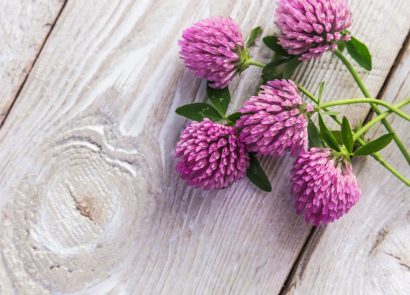Coffee
While many of us are being told to reduce our caffeine intake, numerous studies have suggested that coffee might actually good for the liver. A British Liver Trust report, which reviewed the entire body of current research on the subject, found regularly drinking moderate amounts of the hot drink might prevent liver cancer and lower the risk of fibrosis and cirrhosis. And it doesn’t matter if you order a filter or an espresso; the same advantages seem to apply.
“The benefit does appear to be dose dependant, however,” says Lilia Malcolm, registered dietician at thefoodphilosophy.net. “Researchers have shown that drinking one cup of coffee per day is associated with a 20 percent reduction in liver cancer, and this can increase to up to 50 percent reduction with five cups per day.
“Coffee drinking has also been shown to reduce the levels of gamma-glutamyl transferase (GGT), a liver enzyme that is often raised due to liver inflammation. This suggests its consumption may help those who already have some form of liver damage.”
Garlic
Add chopped garlic to your dinner, and you could be helping your liver detox. “Garlic helps your liver activate enzymes that can flush out toxins,” says Belle Amatt, registered nutrition consultant at belleamatt.com. “It also has a high amount of allicin and selenium, two natural compounds that aid in liver cleansing.”
Oily fish
Fish such as cod, salmon and sardines could give you a double whammy of liver benefits. This is because they contain potassium, a deficiency of which could be linked to nonalcoholic fatty liver disease (a build up of fat in the liver, normally caused by an unhealthy diet or obesity).
“The high levels of protein are also an essential support for liver detoxification, and the sulphur-containing amino acids cysteine and methionine,” says nutritionist Kate Dimmer, (katedimmer.com). “Other good sources of these amino acids are free-range organic lean meats, poultry, eggs and dairy as well as soy, oats, sesame seeds and spirulina.”
Nuts
Nuts such as almond and Brazil contain good sources of vitamin E and selenium, both of which have been linked to a boost in liver health. An American Journal of Clinical Nutrition study showed that deficiency in selenium was linked to a marked increase in liver cancer risk.
Beetroot
“Beetroot’s high levels of plant flavonoids make it a great addition to a liver-friendly diet,” says Amatt. “These phytonutrients help improve the overall functioning of your liver, and the chlorophyll helps to rid the body of environmental toxins, heavy metals, herbicides and pesticides.”
Carrots
Carrots are thought to boost liver health due to their high levels of carotenoids, which stimulate bile flow in the liver and waste removal. Early studies on animals suggest beta-carotene in carrot oil – an oil extracted from the dried veg – might also help prevent liver damage caused by alcohol.
Dandelion root
The roots, leaves and flowers of this wild plant have been used for their liver-protecting effects for hundreds of years. It’s believed that the phenolic compounds have anti-inflammatory properties. One study in the Journal of Food and Chemical Toxicology found an extract of the root could prevent damage to the liver caused by alcohol toxicity.
Green tea
It’s the antioxidants in this tea that are thought to shield liver cells from damage by free radicals, however to get the best effect you may need to try a supplement. “Green tea contains B vitamins, folate, potassium, magnesium, caffeine and antioxidants, particularly catechins, which have been used as part of Eastern medicine for centuries,” says Malcolm. “But while some small studies have suggested that it could help reduce fatty liver, this involved consuming the tea at high doses, much more than what would be found in normal green tea.”
Green veg
“Leafy greens like spinach and lettuce are great additions to a liver-friendly diet,” says Amat. “The chlorophyll helps to rid the body of environmental toxins and acts as a protective mechanism for the liver. Cruciferous veggies like broccoli and Brussels sprouts also contain important phytochemicals that aid in the detoxification process.”
Turmeric
Research on mice has suggested curcumin (the chemical that gives turmeric its bright colour) may help in the fight against liver damage and possibly delay the onset of cirrhosis. “A more recent study looked at whether this promising claim has the same benefit in humans and the results did show some improvement in function,” adds Malcolm. “However, the researchers used fermented turmeric powder due to its increased bioavailability, which is different from your standard spice found in your kitchen pantry.”
Apple cider vinegar
While it’s certainly not the cure-all liver tonic that people claim, one study has shown that apple cider vinegar can help reduce cholesterol by 13 percent. This is crucial to liver health as this organ plays a central role in the metabolism of fats.
Avocado
“Avocado produces a type of antioxidant called glutathione, needed for our livers to filter out harmful substances,” says Amat. “Squeeze lemon into your avocado dip, or sip on warm water with lemon for a liver-boosting beverage. Lemons help our bodies cleanse out toxic materials and aid the digestion process.”
YOur 4 -step liver detox plan
Had a heavy weekend? Kate offers some step-by-step advice for soothing your liver after one too many…
Step one: get hydrated
Abstain from any more alcohol (one to two weeks is preferable!). Instead, drink plenty of filtered water to help flush out any toxins – approximately two litres per day. Other liversupporting drinks include nettle tea, chicory root coffee and dandelion root coffee. Or try coconut water as it is full of electrolytes and is particularly high in magnesium and potassium. These minerals are essential for nerve and muscle function and can aid in relaxation and sleep.
Step two: replace lost nutrients
Include plenty of phytonutrients in your diet which act as antioxidants, disabling the free radicals which are produced in the first phase of liver detoxification. Add red and purple coloured berries to a homemade smoothie, or snack on grapes, citrus fruits or kiwi. Use orange and red peppers in a salad or cook up orangecoloured veg such as sweet potatoes or butternut squash to make a nourishing and comforting soup.
Step three: keep up the protein
Start your day with poached eggs on wholegrain toast, or porridge topped with nuts and seeds. Protein is essential to support liver detoxification.
Step four: eat your greens
Vegetables have numerous health benefits but cruciferous veg such as cabbage, sprouts, broccoli and kale are supportive of liver function by contributing to the production of glutathione, which helps to break down acetaldehyde produced after drinking alcohol.
Please note these are general nutrition tips and may not suit people with a diagnosed health condition






















